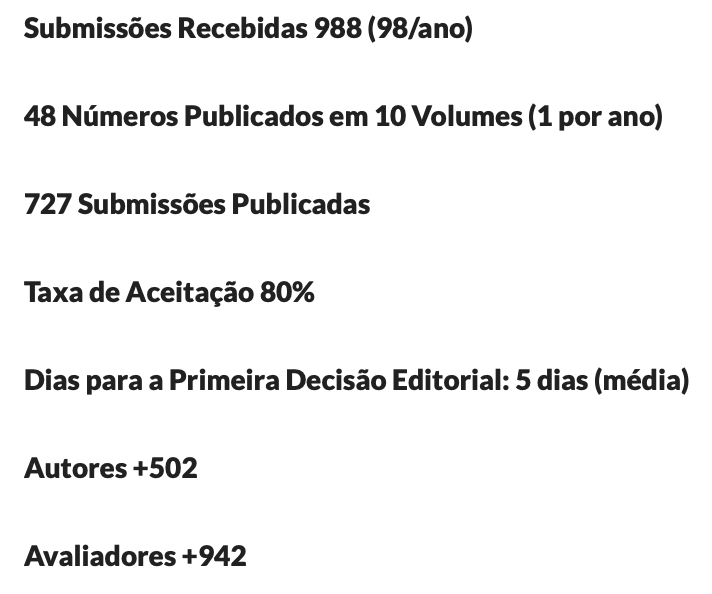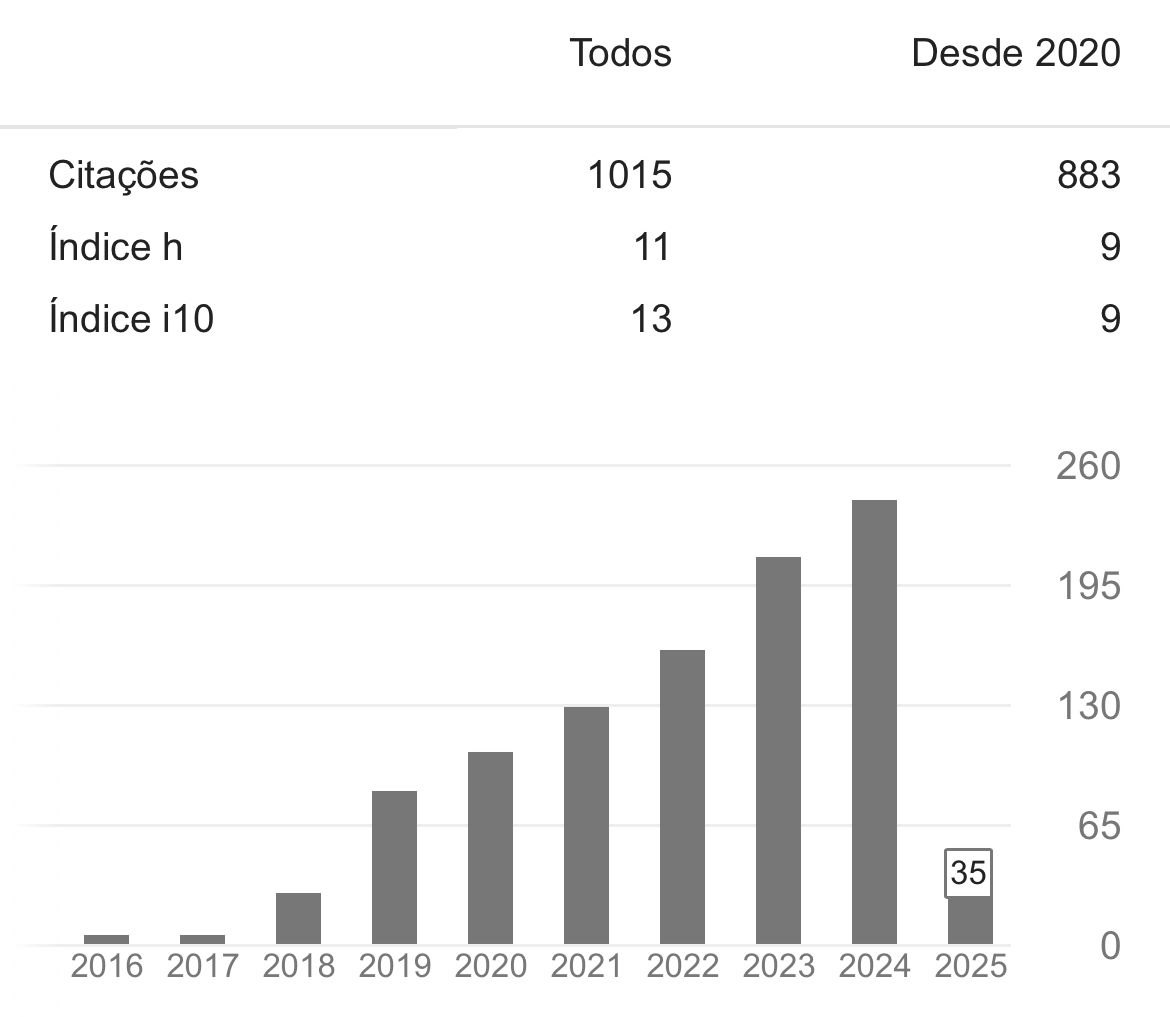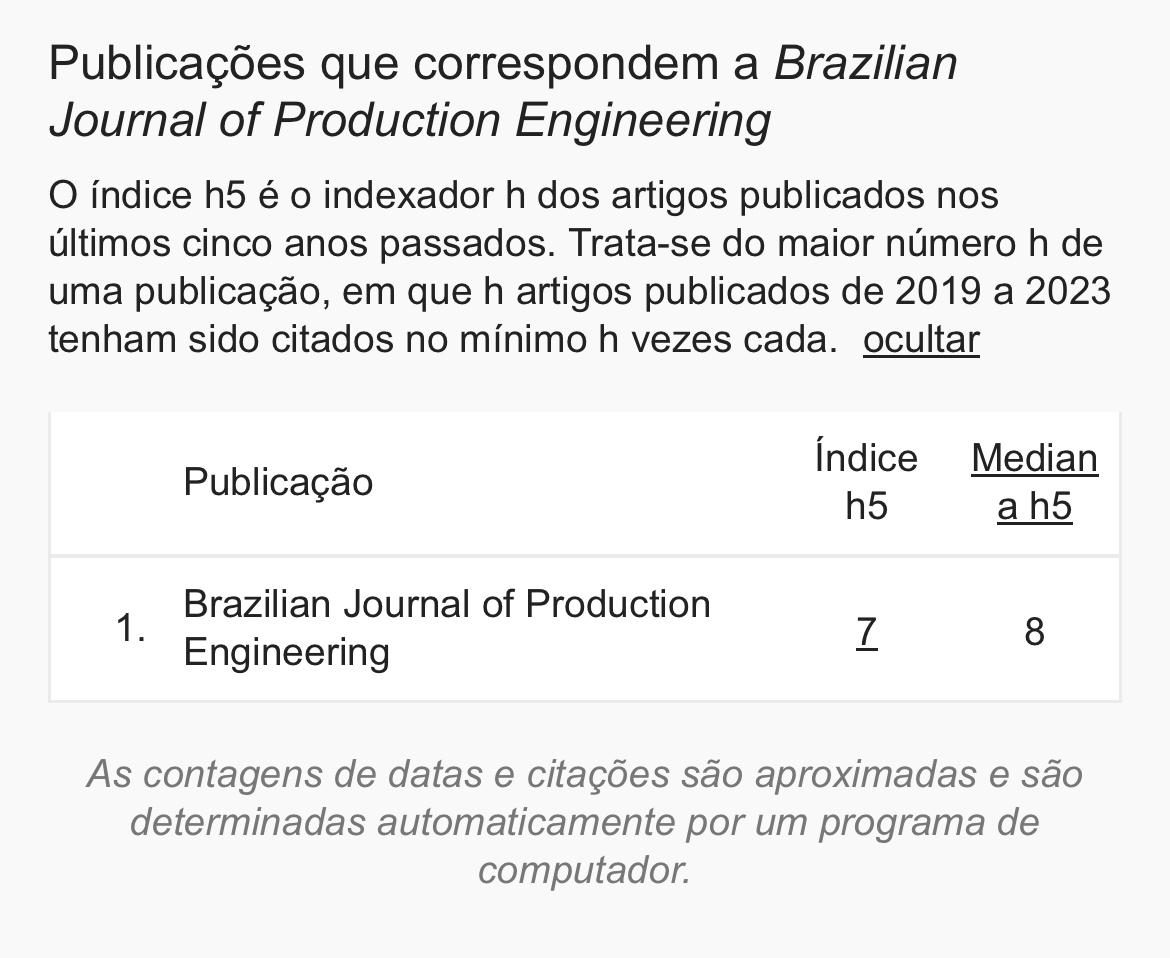Propuesta de un framework para alinear las iniciativas de innovación con un enfoque en los consumidores y las competencias básicas
DOI:
https://doi.org/10.47456/bjpe.v7i5.36753Palabras clave:
Innovación, competencias esenciales, enfoque del consumidor, canvasResumen
Contexto: La innovación en las organizaciones es un tema que se ha debatido intensamente, sin embargo, existe la necesidad de crear un framework que verifique la efectividad de las iniciativas de innovación, analizando su alineación con las competencias centrales y el enfoque en el consumidor.
Objetivo: Este trabajo tiene como objetivo proponer un framework para verificar la alineación de las iniciativas de innovación organizacional con sus competencias centrales y el foco en el consumidor, elementos tales son parte de la construcción de la ventaja competitiva, como lo propone Agostinho (1995, 2012, 2014).
Método: El framework propuesto se determinó a través de la investigación bibliográfica y se verificó su validez y aplicación en un solo estudio de caso en una organización en el campo de la medicina diagnóstica, utilizando las herramientas Business Model Canvas y Value Proposition Canvas, para propósitos de mapeo de competencias básicas y del consumidor. enfoque respectivamente, relacionándolos con iniciativas de innovación.
Resultados: La representación con Business Model Canvas fue eficaz para determinar las competencias centrales de la organización. El Value Proposition Canvas permitió una visión analítica del contexto de los segmentos de clientes, lo que permitió un análisis del enfoque en el consumidor. Aplicando el framework, es posible verificar la alineación entre los elementos cualitativos presentes en estos dos constructos y las iniciativas de innovación, en producto y en proceso.
Conclusión: El framework propuesto fue eficaz para verificar la alineación entre los elementos de las competencias básicas, el enfoque del consumidor y la innovación, permitiendo una visión holística y midiendo la armonía entre estos elementos.
Descargas
Citas
Agostinho, O. L. (1995). Integração Estrutural dos Sistemas de Manufatura como Pré Requisito de Competitividade. Tese de Livre Docência, Universidade Estadual de Campinas, Campinas, SP, Brasil.
Agostinho, O. L. (2012). Proposal of adaptability indexes to support management of engineering and marketing systems. Proceedings of 6th European Conference on Information Management and Evaluation, Cork, Ireland, 102410. ISBN: 978-162276658-1.
Agostinho, O. L. (2014). Methodology to prioritize business and technology strategies to provide enterprise competitiveness. Proceedings of 2014 International Conference on Engineering, Technology, and Innovation – ICE 2014, Bergamo, Italy. https://doi.org/10.1109/ICE.2014.6871536
Agostinho, O. L. (2015). Proposal of organization framework model, using business processes and hierarchical patterns to provide agility and flexibility in competitiveness environments. Procedia Engineering. 131, 401-409. https://doi.org/10.1016/j.proeng.2015.12.433
Ahmadi, H. B., Lo, H. W., Gupta, H., Sarpong, S. K., & Liou, J. J. H. (2020). An integrated model for selecting suppliers on the basis of sustainability innovation. Journal of Cleaner Production, 277(1), 1-11. https://doi.org/10.1016/j.jclepro.2020.123261
Ahworegba, A. H., Omoloba, J. O., & Estay, C. (2020). How firms risk through entrepreneurial innovations: Behavioural patterns and implications. The International Journal of Entrepreneurship and Innovation. 21(4), 223-236. https://doi.org/10.1177/1465750320903621
Asmar, L., Grigoryan, K., Low, C. Y., Roeltgen, D., Kühn, A., & Dumitrescu, R. (2020). Structuring Framework for Early Validation of Product Ideas. International Journal of Integrated Engineering. 13(2), 229-240. https://doi.org/10.30880/ijie.2021.13.02.027
Associação Brasileira de Medicina Diagnóstica (2020). Painel ABRAMED 2020. São Paulo: ABRAMED. Recuperado de https://abramed.org.br/publicacoes/painel-abramed/painel-abramed-2020-o-dna-do-diagnostico/
Baregheh, A., Rowley, J., & Sambrook, S. (2009). Towards a multidisciplinary definition of innovation. Management Decision. 47(8), 1323-1339. https://doi.org/10.1108/00251740910984578
Bonjour, E. & Micaelli, J. P. (2010). Design core competence diagnosis: A case from the automotive industry. IEEE Transactions on Engineering Management. 57(2), 323-337. https://doi.org/10.1109/TEM.2009.203683
Cabarcos, M. A. L., Srinivasan, S., Monteiro, S. G. O., & Rodríguez, P. V. (2019). Tacit knowledge and firm performance relationship. The role of product innovation and the firm level capabilities. Journal of Business Economics and Management. 20(2), 330-350. https://doi.org/10.3846/jbem.2019.9590
Carvalho, H. G., Reis, D. R., & Cavalcante, M. B. (2011). Gestão da inovação. Curitiba: Aymará. ISBN: 9788578417734.
D’Attoma, I. & Ieva, M. (2020). Determinants of technological innovation success and failure: Does marketing innovation matter? Industrial Marketing Management. 91(1), 64-81. https://doi.org/10.1016/j.indmarman.2020.08.015
Damanpour, F. (1996). Organizational complexity and innovation: developing and testing multiple contingency models. Management Science. 42(5), 693-716. https://doi.org/10.1287/mnsc.42.5.693
Gil, A. C. (2008). Métodos e técnicas de pesquisa social (6ª ed.). São Paulo: Atlas. Gil, A. C. (2010). ISBN: 978-85-224-5142-5.
Guckenbieh, P., Zubielqui, G. C., & Lindsay, N. (2021). Knowledge and innovation in start-up ventures: A systematic literature review and research agenda. Technological Forecasting & Social Change. 172(1), 121026. https://doi.org/10.1016/j.techfore.2021.121026
Hoedemaeckers, B. (2017). Getting to know people with empathy maps. Medium – Design for Business. Recuperado de https://medium.com/design-for-business/getting-to-know-people-with-empathy-maps-3c63f2dfd640
Idárraga, D. A. M. & Marín, J. C. C. (2018). Relationship between innovation and performance: impact of competitive intensity and organizational slack. Revista de Administração de Empresas. 59(2). 95-107. https://doi.org/10.1590/s0034-759020190203
Li, S., Clark, T., & Sillince, J. (2018). Constructing a strategy on the creation of core competences for African companies. Technological Forecasting & Social Change. 131(1), 204-213. https://doi.org/10.1016/j.techfore.2017.08.008
Lima, I. E. S., Nour, A. D. A., & Albuquerque, H. M. (2021). O índice de mortalidade das startups brasileiras e a necessidade de políticas públicas para o ecossistema empreendedores. Revista Brasileira de Administração Científica. 12(1), 147-157. https://doi.org/10.6008/CBPC2179-684X.2021.001.0012
Miguez, V. B., Merino, E. A. D., & Lezana, A. G. R. (2018). O Design contribuindo para o front end da Inovação. Brazilian Journal of Production Engineering. 4(4), 245-263. https://doi.org/10.0001/V04N04_12
OECD/Eurostat (2018). Oslo Manual 2018: Guidelines for Collecting, Reporting and Using Data on Innovation, 4th ed., OECD Publishing: Paris/Eurostat, Luxembourg, 258p. https://doi.org/10.1787/9789264304604-en
Osterwalder, A. & Pigneur, Y. (2011). Business Model Generation – Inovação em modelos de negócios. Rio de Janeiro: Alta Books. 279p. ISBN: 978-85-7608-550-8.
Osterwalder, A., Pigneur, Y., Bernarda, G., & Smith, A. (2014). Value Proposition Design – Como construir propostas de valor inovadoras. São Paulo: HSM do Brasil. 290p. ISBN: 978-85-67389-25-7.
Prodanov, C. C. (2013). Metodologia do trabalho científico: métodos e técnicas da pesquisa e do trabalho acadêmico (2ªed.). Novo Hamburgo: Feevale. ISBN: 978-85-7717-158-3.
Riel, A. C. R., Andreassen, T. W., Lervik-Olsen, L., Zhang, L., Mithas, S., & Heinonen, K. (2021). A customer-centric five actor model for sustainability and service innovation. Journal of Business Research. 136, 389-341. https://doi.org/10.1016/j.jbusres.2021.07.035
Romer, P. (1990). Endogenous technological change. Journal of Political Economy. 98(5), 71-102. https://doi.org/10.1086/261725
Seddighi, H. R. & Mathew, S. (2020). Innovation and regional development via the firm’s core competence: some recent evidence from North East England. Journal of Innovation & Knowledge. 5(4), 219-227. https://doi.org/10.1016/j.jik.2019.12.005
Seram, N., Nanayakkara, J., & Lanarolle, G. (2019). Organization’s core competencies and front-end decision-making in the apparel innovation. Research Journal of Textile and Apparel. 23(4), 355-370. https://doi.org/10.1108/RJTA-03-2019-0010
Soleas, E. (2021). Environmental factors impacting the motivation to innovate: a systematic review. Journal of Innovation and Entrepreneurship. 10(1), 1-18. https://doi.org/10.1186/s13731-021-00153-9
Strategyzer (2018). Business Model Canvas Instruction Manual. Recuperado de https://assets.strategyzer.com/assets/resources/the-business-model-Canvas-instruction-manual.pdf
Strategyzer (2018). Value Proposition Canvas Instruction Manual. Recuperado de https://assets.strategyzer.com/assets/resources/the-value-proposition-Canvas-instruction-manual.pdf
Wirtz, B. W., Pistoia, A., Ullrich, S., & Göttel, V. (2016). Business models: origin, development, and future research perspectives. Long Range Planning. 49(1), 36-54. https://doi.org/10.1016/j.lrp.2015.04.001
Ziaie, A., ShamiZanjani, M., & Manian, A. (2021). Systematic review of digital value propositions in the retail sector: New approach for digital experience study. Electronic Commerce Research and Applications. 47, 101053. https://doi.org/10.1016/j.elerap.2021.101053
Descargas
Publicado
Cómo citar
Número
Sección
Licencia
Derechos de autor 2021 Brazilian Journal of Production Engineering - BJPE

Esta obra está bajo una licencia internacional Creative Commons Atribución-NoComercial-CompartirIgual 4.0.

















































































